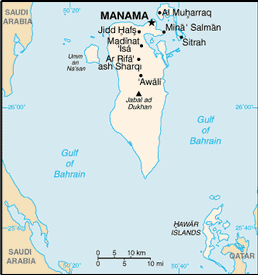Though the first White House reaction to the news of Saudi-led forces pouring into Bahrain was seeming ambivalence, insisting it was not technically an “invasion,” the comments since then suggest the Obama Administration was far from on-board with the plan.
 Indeed, officials say that they weren’t even consulted before the troops entered Bahrain, and were simply “informed” when the troops were in the process of being deployed. And let us not forget that two days prior, Secretary of Defense Robert Gates was in Bahrain calling for “dialogue” to save the regime.
Indeed, officials say that they weren’t even consulted before the troops entered Bahrain, and were simply “informed” when the troops were in the process of being deployed. And let us not forget that two days prior, Secretary of Defense Robert Gates was in Bahrain calling for “dialogue” to save the regime.
Now, the Obama Administration is warning the Gulf Cooperation Council, the Saudi-led group the troops are ostensibly operating on behalf of, to “exercise restraint” and avoid attacking the Shi’ite protesters in the streets of Manama.
But it seems Bahrain’s monarchy has rejected their advice and instead is looking for the Saudis, who are likewise concerned by the Shi’ite demands for equal treatment under the law, to impose a solution.
So far the troops don’t appear to be a factor on the streets of Manama, but with their numbers growing (reports have as many as 2,000 on the street as of Monday evening) it seems they are there for more than simply an advisory role. It seems we may be seeing the first signs of a split in US and Saudi regional positions, with the Obama Administration’s concerns that a violent crackdown will damage their reputation trumped by the Saudi royal family’s concerns that democracy in Bahrain will inevitably spread across the causeway and into their territory.


